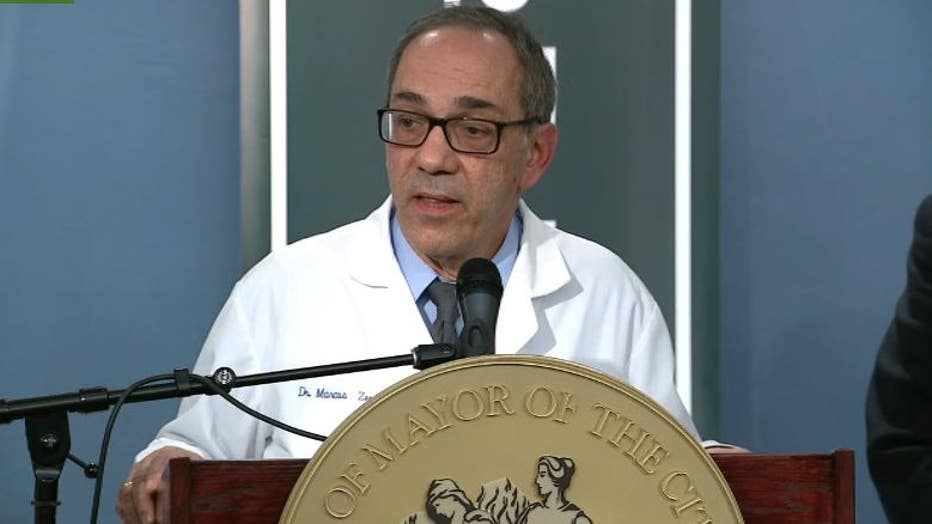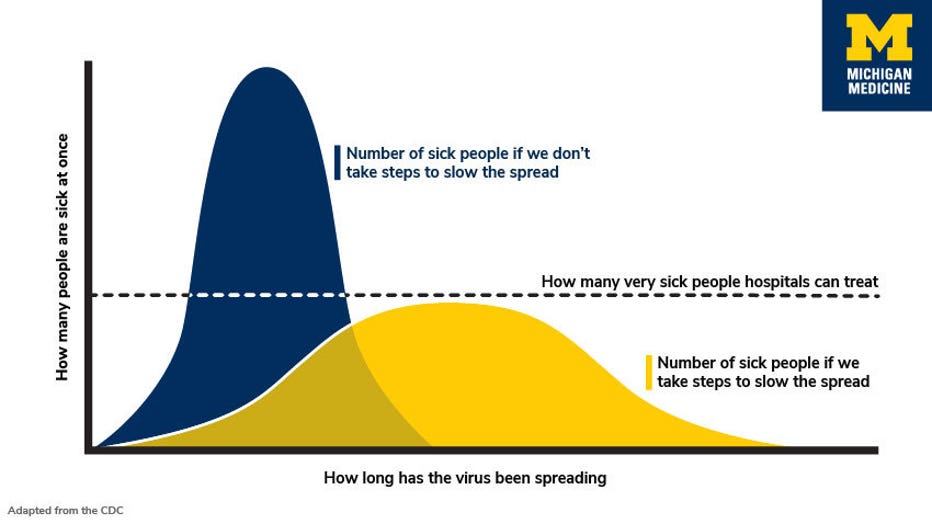Coronavirus spread has "moved to a different stage" says Detroit mayor
DETROIT - Following the announcement of 10 new cases on Thursday and four more on Friday testing positive for coronavirus in Michigan, Mayor Mike Duggan said the COVID-19 spread has shifted.
"It's clear we've moved to a different stage," said Duggan during a press conference Friday.
Following the initial confirmation of two cases on Tuesday, the coronavirus spread has reached the stage of "community-acquired infection" meaning the virus is being spread by people with no history of travel.
That's why Duggan and the Henry Ford Medical Sepcialist of Infectious Diseases Mark Zervos said they supported the recent suspension of public schools in Michigan until April.

Mark Zervos, an infectious disease specialist from Henry Ford Hospital
"We need to be completely honest about what we're facing. This is not going to be over in a few weeks," Duggan said. "This is going to be a several month battle to deal with coronavirus."
Due to the virus being embedded in the community, it's all but certain a "large number of residents" have the virus and haven't been tested yet, Duggan said.
While one of the most effective measures to reduce the spread of the virus is to increase testing among individuals showing symptoms - like coughing, trouble breathing and a fever. However, those efforts have been limited by a lack of kits available and restrictions on those who can be tested.
Both Duggan and Zervos strongly recommended that if someone is showing symptoms or has had primary contact with a patient who has tested positive for the virus, to self-quarantine.
"One of the biggest recommendations and one of the most important is to not come to work," Zervos said. "Don't go to public places if someone is sick."
At the same time, health officials are hoping they'll see an increase in positive cases soon. An increase in positive tests will give officials a better idea of where the disease has spread, as well as helping those already sick get hospitalized. How the city and state responds over the next weeks will better inform the necessary capacity hospitals will need to contend with as beds begin to fill up.
"We want the number of positives to increase as fast as possible," said Duggan. "We can't treat people until we know who we are."
RELATED: The chart that explains why everything is being canceled over coronavirus
Epidemiologists call the drastic measures of event cancelations and public building closures "flattening the curve" - which is best simplified by the chart below.

"The tall, skinny curve is bad – it means that a lot of people will get sick at once, in a short period of time because we don’t take enough steps to prevent the virus from spreading from person to person," wrote Kara Gavin, a research and policy media relations manager at University of Michigan's Institute for Healthcare Policy and Innovation. "Most people won’t get sick enough to need a hospital. But those who do could overwhelm the number of beds and care teams that our nation’s hospitals have available."
Duggan said he believes most of the restrictions on who can be tested will be lifted soon. Along with that shift, the city plans to set up medical assistance tents where people can drive up, and get tested.
Along with the school district's plan to feed its students by offering breakfast and lunch pickups next week, Gleaners, United Way, Forgotten Harvest, and the Detroit Children's Fund are all contributing to the cause.
"If we do our jobs right, you should see a rapid increase in the number of people testing positive, we can change the course of this very difficult time," he said.

